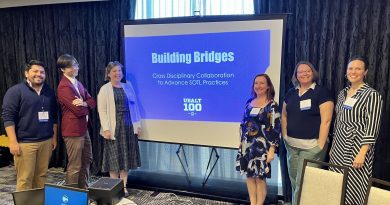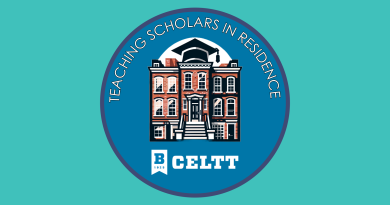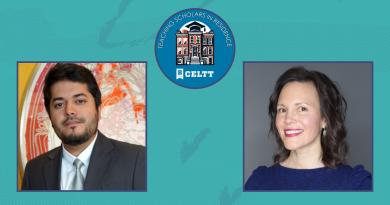Meet the TSiRs: Marta Baffy and Jennie Keohane
This month, we’re excited to showcase two of our newest TSiR (Teaching Scholars in Residence) cohort members, each bringing a compelling research focus to the scholarship of teaching and learning at UBalt. With questions that cut across disciplines, Marta Baffy (LAW) and Jennie Keohane (CAS) are shaping projects that could offer valuable insights into how students learn best.
- Marta is developing a study around a common, yet elusive, classroom question: Are students actually doing the assigned readings—and why or why not? Her early research focuses on law students, considering how factors like reading volume, time constraints, and the use of supplemental study aids may influence case reading compliance. Marta is drawing from both legal education and broader SoTL literature to shape an approach that balances curiosity with rigor. Her goal is to better understand student behavior around reading and to eventually inform strategies for course design that acknowledge the realities of students’ workloads while maintaining high expectations.
- Jennie is exploring how noncompetitive, extracurricular debate experiences modeled after Braver Angels events might serve as a catalyst for student growth in communication competence, listening skills, and civic engagement. With a background in rhetorical studies and public speaking, she’s interested in how structured dialogue outside the classroom might amplify what students are learning inside it. Jennie’s initial inquiry is rooted in existing research on communication self-efficacy and debate as a high-impact practice, and she’s currently outlining a study that could use focus groups and communication assessment tools to examine the potential impacts of debate participation.
Both Marta and Jennie are driven by a desire to better understand how students engage with their learning experiences, whether that means digging into case law or finding their voice in structured dialogue. Stay tuned as their projects develop, and consider how your own classroom observations might spark a future research question.



